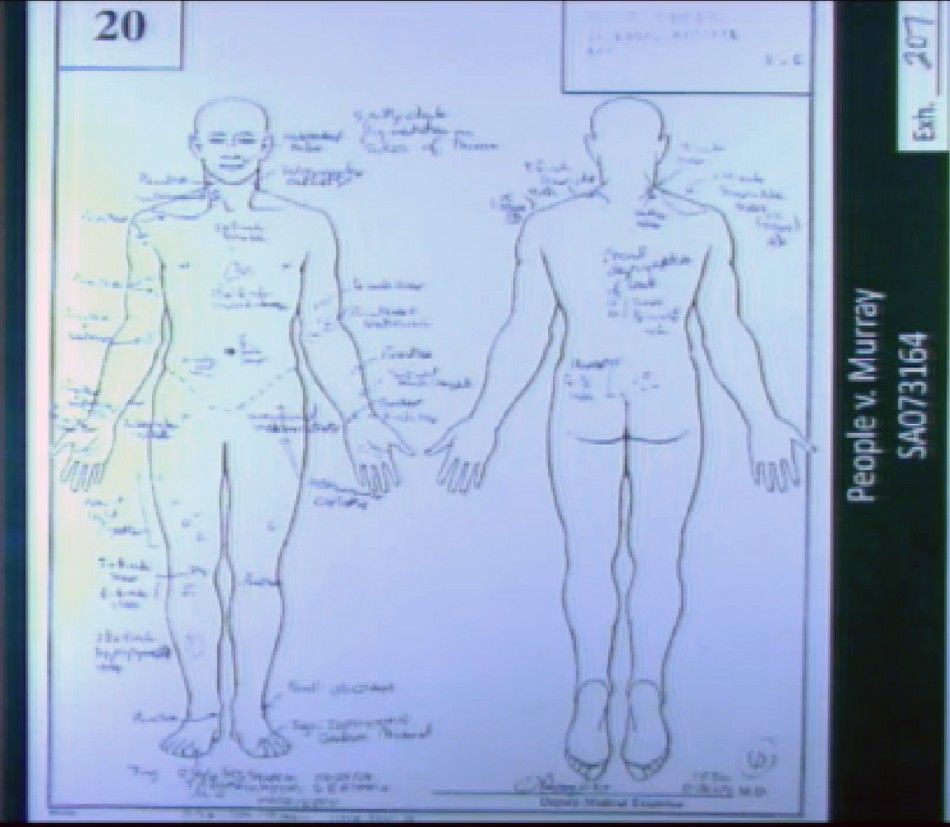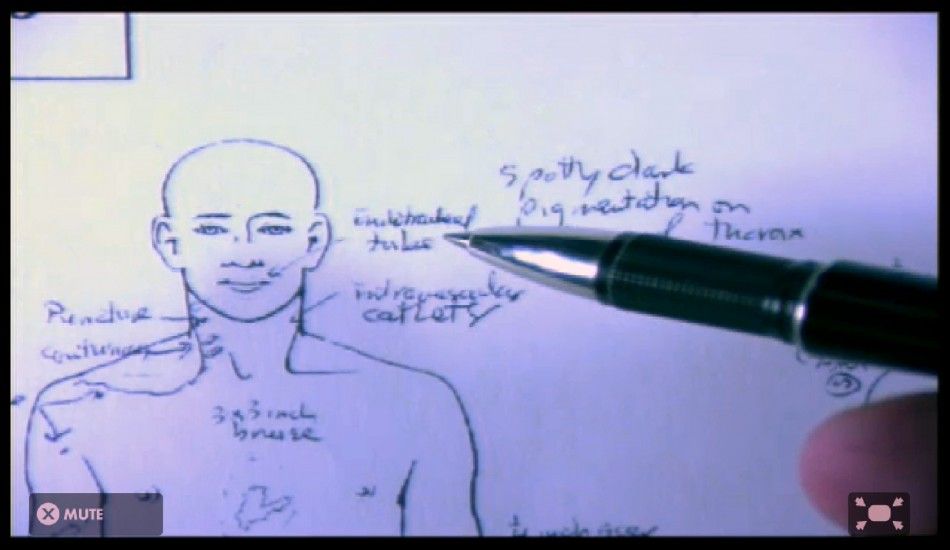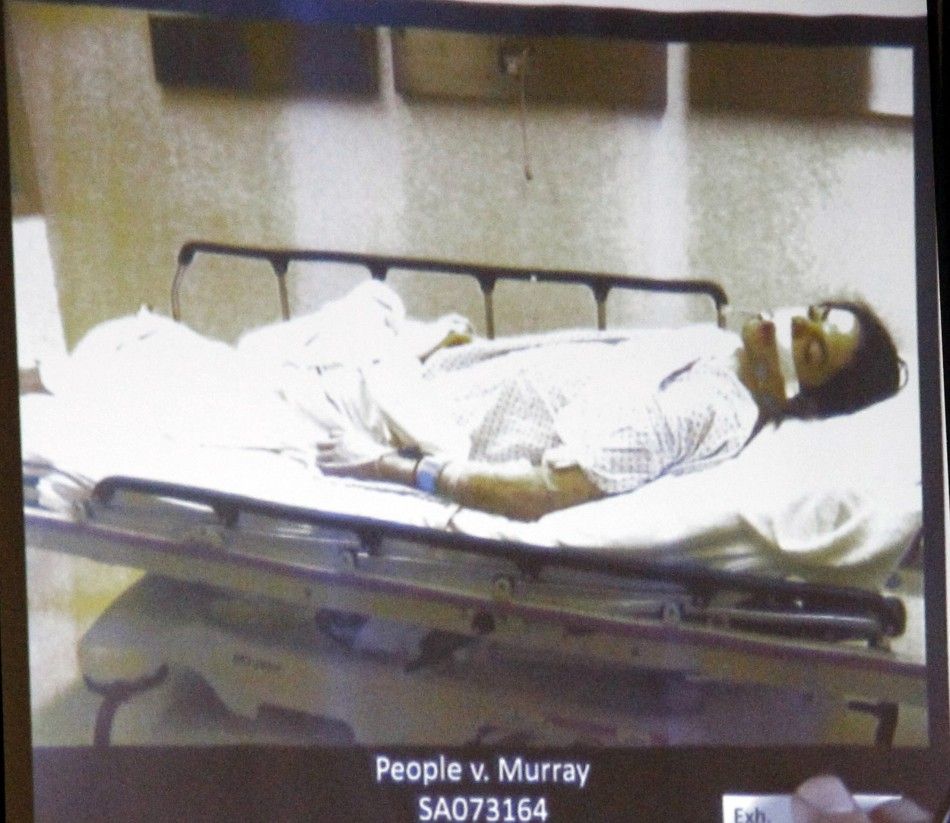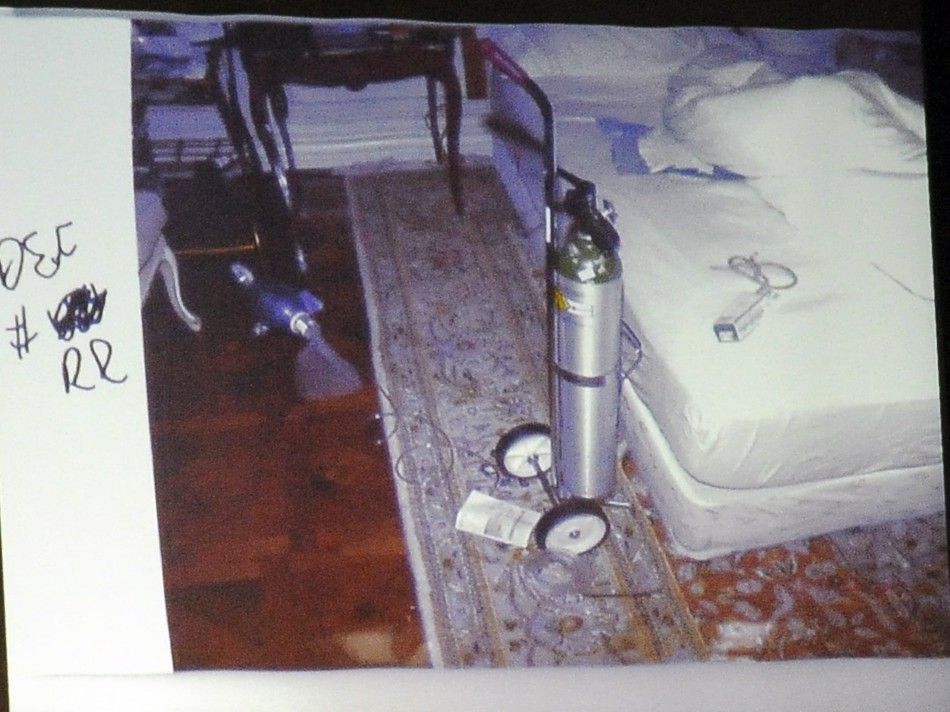Michael Jackson autopsy photos
Michael Jackson could not have given himself the powerful anesthetic propofol that caused his death in 2009, the doctor who performed the singer's autopsy testified on Tuesday.
Dr. Christopher Rogers told jurors in the manslaughter trial of Dr. Conrad Murray that he determined Jackson's death was a homicide.
Murray has denied involuntary manslaughter but has admitted giving Jackson the anesthetic used for surgery as a sleep aid. However, his attorneys have claimed that Jackson caused his own death by giving himself an extra dose when Murray was out of the room on June 25, 2009.
The circumstances from my point of view do not support self-administration of propofol, Rogers said.
In addition, Rogers said he did not believe Jackson would have had time to give himself the anesthetic in the two minutes that Murray told police he was out of the room.
Rogers, the Los Angeles county medical examiner, said he believed that a lack of precise dosing equipment in the singer's bedroom meant it would have been easy for Murray to incorrectly estimate how much propofol he had given to the singer.
The problem that Mr. Jackson was having was that he couldn't sleep, and it's not appropriate to administer propofol in that situation. The risk outweighs the benefit, Rogers said.
JACKSON AUTOPSY PHOTOS SHOCK FANS
Witnesses and phone records have shown that Murray was on the phone or writing email for more than 45 minutes before prosecutors believe he found Jackson's lifeless body, and an ambulance was called.
In a dramatic day as the third week of the trial got underway, jurors were shown a photo of Jackson's thin, naked body on the autopsy table.
Some fans in the Los Angeles courtroom sobbed quietly, while one walked out, overcome with emotion. Jackson's family excused themselves before the autopsy evidence was presented.
Earlier, the jury heard Murray tell police in a taped interview about the traumatic hours at the hospital where Jackson, 50, was officially pronounced dead.
Murray told police that the singer's mother, Katherine, broke down in tears when she was told Jackson had died, and the pop star's daughter, Paris, said she did not want to be an orphan.
I stayed there, I hugged them all, gave them all comfort, Murray said on the tape.
Paris Jackson, then age 11, said I know you tried your best, but I'm really sad. You know, I will wake up in the morning and I won't be able to see my daddy.' She cried and was very stark, Murray recalled. Paris said she did not want to be an orphan, he added.
Murray could face up to four years in prison if convicted.





© Copyright Thomson Reuters 2024. All rights reserved.





















